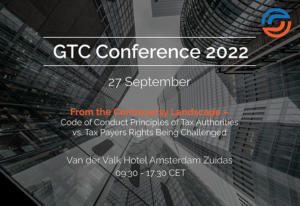- DLA Cliffe Dekker Hofmeyr
- South Africa
- September 10 2014
Section 14 of the Prescription Act, No 56 of 1972 – a life line
In a recent unreported judgment of the South Gauteng High Court in Anglo American Properties Limited v City of Johannesburg Metropolitan Municipality; Case No.35043/12, Mokopo AJ reminded attorneys and their devastated clients of a life line that is sometimes forgotten.
The issue before the court was whether Anglo American Properties Limited’s (Anglo) claim had prescribed or whether an oral acknowledgment of indebtedness and undertaking to pay by the City of Johannesburg Metropolitan Municipality (COJ) interrupted prescription as contemplated by s14 of the Prescription Act, No 56 of 1972 (the Act).
Section 14 of the Act provides that the running of prescription shall be interrupted by an express or tacit acknowledgment by the debtor.
The facts of the case are briefly as follows:
- Anglo’s claim arises from a tax invoice issued by COJ on 28 July 2008 in terms of which COJ acknowledged that Anglo’s account was in credit in the amount of R1,183,149.00 (the debt).
- Neither the tax invoice nor the debt was disputed by COJ.
COJ contended that Anglo’s claim had prescribed because Anglo had knowledge of the debt more than three years before summons was issued on 14 September 2012.
Anglo denies that the claim has prescribed and argued that prescription was interrupted on 29 March 2011 when an employee of COJ orally acknowledged to Reon Louw (Louw) of Anglo that the debt was due to Anglo and that Anglo could claim it. In support of its case, counsel for Anglo relied upon Adams v SA Motor IndustryEmployers’ Association 1981 (3) SA 1189at 1198 SCA where it was held that an acknowledgement, in order to constitute a claim must reflect both the indebtedness and intent to pay. The intent may be implicit and reference can be had to surrounding circumstances. Counsel for Anglo argued that the debt as reflected on the tax invoice was common cause and that the remaining question to be determined was whether there was an intention to pay.
Mokopo AJ held that there is no doubt that the debt is due to Anglo and in the absence of evidence contrary to that of Louw, she has to accept that there was an acknowledgment and an implicit undertaking to pay. Accordingly, she found that the debt had not prescribed and that the oral undertaking by the employee of COJ to Louw was an express acknowledgment as contemplated in s14 of the Act and accordingly prescription was interrupted.
COJ has subsequently applied for leave to appeal.
The moral of the story – where three years have lapsed since your client has come to know of a claim and it appears that your client’s claim has flat lined – dig a little deeper, you may be able to defibrillate the situation where there has been an express or implicit acknowledgment of debt.






